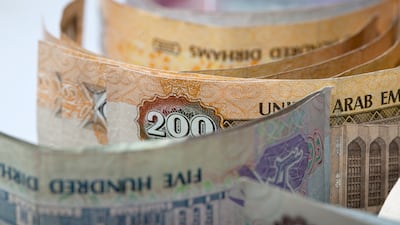Technology offers one of the biggest opportunities and poses one of the most disruptive threats to the global financial system. This is becoming increasingly clear as we enter a post-Covid world.
As Director General of the office responsible for building a strong and sustainable structure to fight financial crime in the UAE, it is my ambition to harness the digital transformation of our economies and societies as a force to fight financial crime. This builds on the UAE’s clear policy and political commitment to combating illicit finance and preserving the integrity of the global financial system.
When I assumed responsibility for the newly formed Executive Office for Anti-Money Laundering (AML) and Counter-Terrorist Financing (CTF) in February, I was energised by the thought of preventing bad actors from exploiting the global financial system. Having oversight for the primary national co-ordinating body within the UAE, I knew we could make a real, tangible difference – and quickly.
Just six months into the office’s existence, I am pleased with the progress. I would like to highlight five key points.
The first is strengthening our defences. Our main objective is to equip the public and private sectors in the UAE with the tools needed to strengthen our defences. This includes building the institutional capabilities set out in the UAE’s National Risk Assessment, National Action Plan and National Strategy for AML/CTF.
One of our guiding principles is information sharing. That is why we launched a Public-Private Partnership Committee, chaired by the Executive Office, which now includes members from 16 government agencies and the private sector. We are also working closely with the Ministry of Foreign Affairs and International Co-operation to facilitate co-operation and co-ordination with the international community on financial crime concerns.
This dynamic coalition helps sharpen our focus on improving the investigation and prosecution of financial crimes, including intelligence sharing and analysis, across the UAE and internationally.
The second point is training. We are investing in training. Around 2,000 participants across all corners of the UAE economy – both offshore and onshore financial institutions, as well as members of designated non-financial businesses and professions (DNFBPs) – joined our recent seminars to encourage enhanced engagement between the public and private sectors to prevent financial crime.

In addition, the UAE Ministry of Economy has run more than 11 AML/CFT compliance workshops – in English and Arabic – attended by almost 7,000 people, including representatives from higher-risk sectors such as precious metals and real estate.
The UAE’s regulatory authorities and ministries will lead more training sessions with industry representatives, focused on key obligations such as reporting suspicious activity and building strong financial crime compliance controls.
The third point is co-operation. The UAE’s Financial Intelligence Unit (UAE-FIU) has signed 65 memoranda of understanding with international counterparts. That is why we are working hard to ensure that our domestic authorities have the resources necessary to co-ordinate with the UAE-FIU, including in relation to cases of international concern.
It does not end there. The UAE regularly participates in knowledge exchanges and skill-building workshops with international partners, including the EU, UK and US. In July, we welcomed a high-level visit from the US Department of the Treasury.
I am pleased to say these partnerships greatly benefit all participants and lead to significant tangible outcomes.
The fourth point is transparency. The UAE recently introduced enhanced regulations requiring the registration of companies’ beneficial owners. As of mid-August, 93 per cent of UAE-based entities had registered successfully in our Ultimate Beneficial Ownership Database.
And there are clear consequences for those who do not comply.
By August, we had issued 78,787 first-step written warnings. This was followed by 42,011 second-level Dh15,000 ($4,000) penalties, totalling Dh630 million. We will not stop there. A third-level penalty will cost double that amount.
This will have a wide-ranging transparency effect across the UAE’s financial system, making investigations more effective in reducing financial crime risks. Already, multiple authorities are using this information through appropriate legal procedures. Combined with the use of advanced analytics, we are starting to understand interconnected entities in several confidential, high-profile investigations.
The fifth point is prosecution. In August, a gang of 40 people were convicted of money laundering and fraudulent activity, with fines totalling Dh860m and sentences of between five and 10 years issued.
This progress is being recognised internationally.
The arrest of a high-profile individual by Dubai Police in June of last year resulted in a guilty plea to accusations of money laundering in a US court, with the US authorities acknowledging the substantial co-operation of the UAE police in bringing the perpetrator to justice.
The interconnectedness of international organised criminal networks, often accelerated by technological advancement, is indeed concerning. But we are fighting back through the power of intelligence, advanced analytics, technology, investigations and public-private partnerships.
There is still much work to do, but we take encouragement from our progress so far. We will continue to accelerate our abilities in detecting, investigating and understanding money laundering and terrorist financing as we advance financial crime compliance frameworks in the UAE and around the world.


